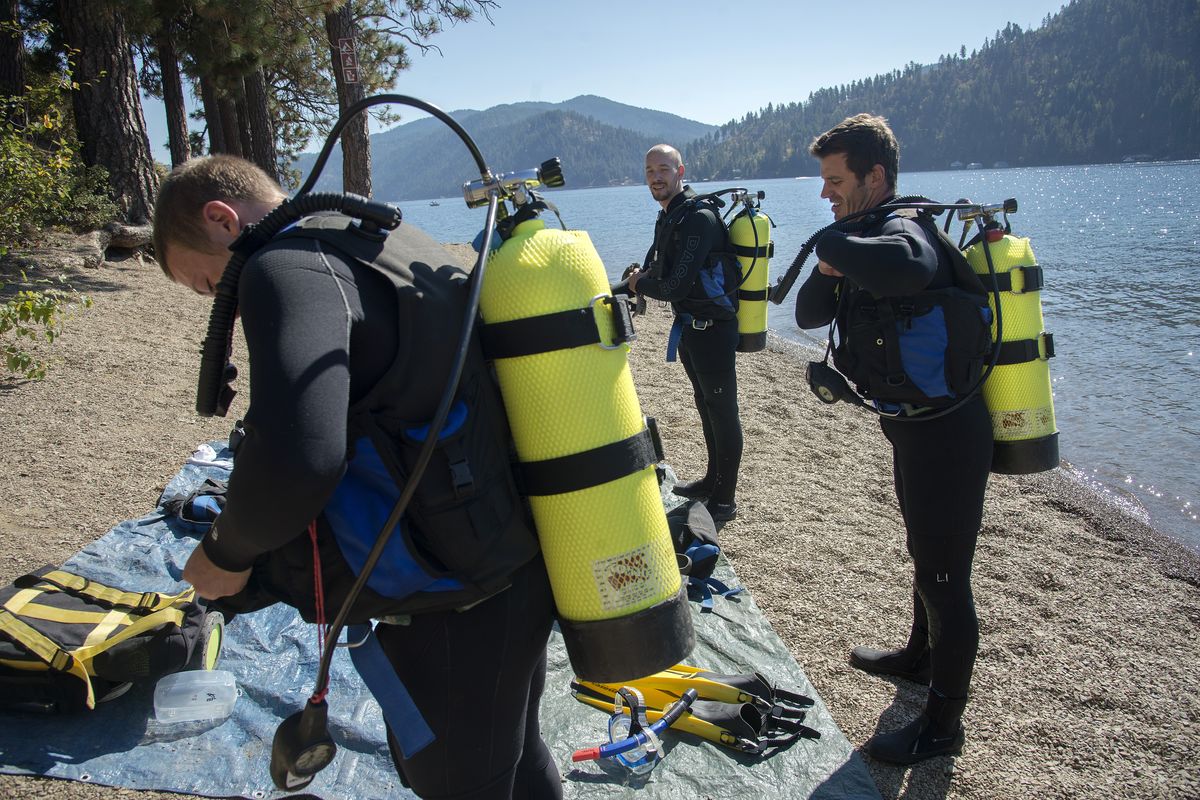Diving deep: Inland Northwest boasts underwater thrills for all skill levels

Whether it’s to explore the graveyards of sunken vessels in Lake Coeur d’Alene or to get acquainted with the colorful fish of the tropics, scuba diving is likely your best way to experience the underwater world.
“Most people have no clue what’s underwater,” said Jim Flodin, scuba instructor and owner of Diver’s West in Spokane and Coeur d’Alene since 2007. “It’s alive and vibrant.”
The Inland Empire alone, with its myriad freshwater lakes, presents excellent opportunities for divers, beginners and advanced. But to get that close-up view of the treasures beneath the surface, you’ll first have to get certified – a necessary aspect of self-contained underwater breathing apparatus (scuba) diving.
Certification typically takes some book learning and a few hours of practice – whether in a pool or in open water – with an instructor. Several levels of certification exist based on your experience and capabilities. Difficult dives at deeper depths typically require additional certification, and several different agencies issue their own levels of certification. The idea is the same: safety first.
“We tell divers, ‘Hey, this is what could happen if …’ ” said Flodin, who began diving while stationed in Turkey with the Air Force more than 40 years ago. “Now that we’ve said that, this is how you protect yourself so that this will never happen to you.
“It can be a little daunting at first. You put your face in the water and you are having to take that magical breath for the first time on a regulator and you go ‘Oh, can I do this?’ “
Aside from the numerous lakes one can dive in the area, Lake Coeur d’Alene provides additional rare opportunities, including swimming with the kokanee and, of course, exploring the famous sunken steam vessels.
Few still remember when worn-down steamer ships such as the Spokane and the Georgie Oakes were stripped of all of their useful parts and lit on fire, set to drift brightly across the lake for all to see during Fourth of July festivities. The ships were sunk just off Independence Point, and the area is now an underwater park for divers who enjoy swimming in and out of windows and up and down stairwells.
“They’re sitting on the bottom, in their underwater grave, and we’re able to go down there,” Flodin said. “I wasn’t around in the ‘50s. I wasn’t around in the ‘30s. Now, I’m able to see them first hand – and they are really cool.”
The allure of scuba diving isn’t just about exploring the lakes of the beautiful Pacific Northwest, according to Spokane native Chris Gallagher, who has been diving since 1994 and is in the process of becoming an instructor.
“When I travel, I dive,” said Gallagher, who took four trips to tropical locations this year. “I don’t enjoy (diving in fresh water) as much as the Caribbean or Fiji … I’m kind of a wuss when it comes to the cold water.”
Tim McCall, instructor and owner of Tom’s Diving Adventures in Coeur d’Alene, does much of his instructing and diving in the Inland Northwest. But he is also a big fan of diving in the tropics, including underwater cave exploration.
“It’s the best crazy underwater extreme stuff,” McCall said. “There are rock formations that are tens of thousands of years old, and nobody gets to see them.
“The hard part is keeping the regulator in your mouth because you want to say, ‘Wow!’ “
Getting into the sport can be a bit pricey – upward of $1,000 just to start. But it’s all money well-spent once you hit the water.
“A lot of people try to come into the sport, and they do it the cheap way,” Flodin said. “Get what you can afford, but try to push yourself to the next level because the best equipment in this sport makes you a better diver.”
Both McCall and Flodin agree that proper instruction eliminates many of the dangers of scuba diving.
“We’re talking about your life,” said Flodin, who takes on more than 75 new students each year. “We’re talking about your air delivery systems. We’re talking about being in an environment that’s 800 times more dense than air. You’re going to die if you don’t know how to do things right.”
Despite the cost, time commitment and initial trepidations, McCall said scuba diving truly is an amazing adventure.
“It’s something you take with you forever,” he said.